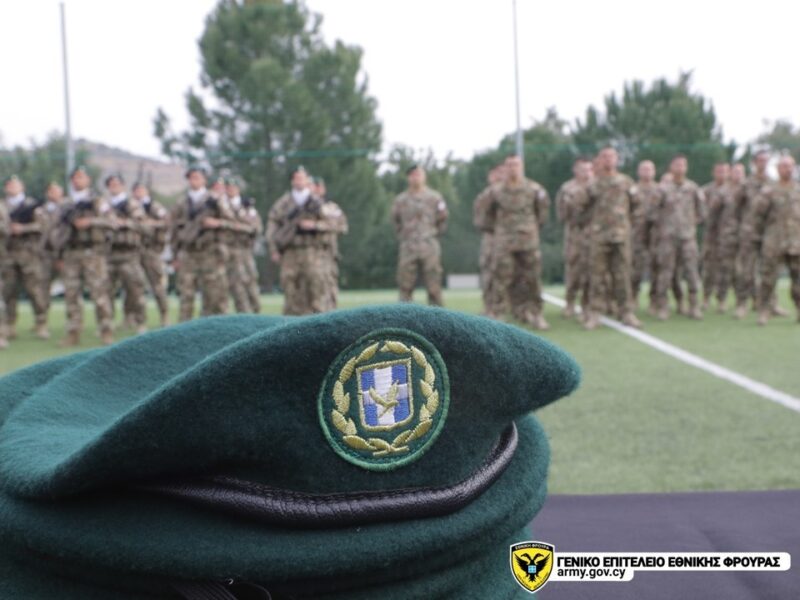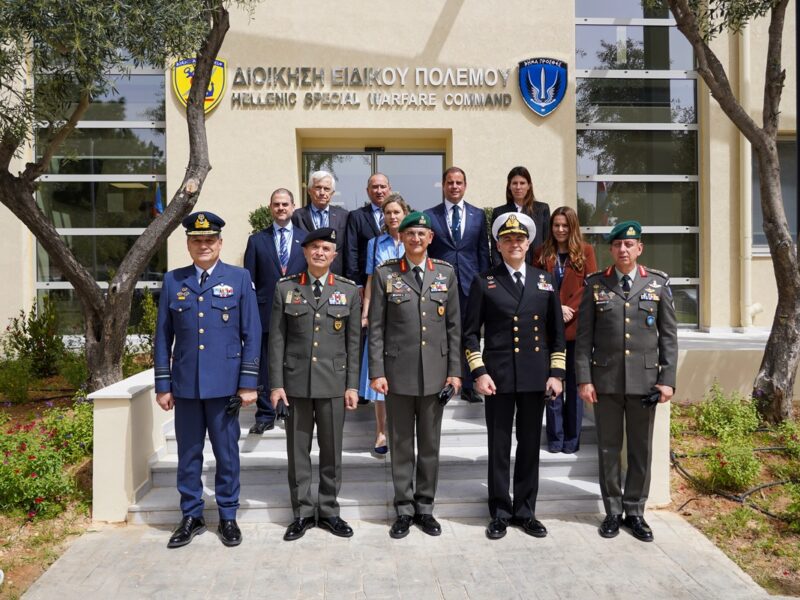They admit Greek supremacy in the air and a “tie” at sea – Whatever the Turks do, they will do it relatively soon after the US-EU draw up the new energy supply map for the European Continent
For a long time now, the Turkish elite, in close cooperation with the Erdogan regime, has very carefully prepared all its moves, in order to raise the issue of sovereignty at the UN for the Aegean and 18 Greek islands, under the pretext of course of the “militarization” of our islands , while the 4th Turkish army has “spread” on the coast of Turkey and with swarms of Turkish offensive unmanned aerial vehicles.
This plan will be a continuation of the Turkish letters to the UN, which are simply a harbinger of the imminent “denunciation of the Treaty of Lausanne and the renegotiation of the sovereignty of 18 Greek islands of the E. Aegean”.
According to a Turkish institute, which prepares these plans on behalf of the Turkish government, it is stated that “in addition, Article 13 of the Lausanne Peace Treaty, on the disarmament of the islands, explicitly linked disarmament with the “maintenance of peace”.
In this context, the fact that the object and purpose of the Lausanne Peace Treaty is to ensure peace, shows us that it is legally….able to be considered as a violation of the disarmament provisions and as a fundamental violation of the Treaty, (the attitude of Greece) which eliminates this main object and purpose.
In this regard, Greece’s violation of the rules regarding the disarmament of the islands may give Turkey the right to denounce the articles of the Lausanne Peace Treaty that regulate sovereignty over the islands.
This situation will also give Turkey the right to demand a renegotiation with Greece of the issue of sovereignty over the Eastern Aegean islands, which number about 18″.
This is the legal narrative of the Turks for the Aegean, (given the non-agreement on the EEZ) which has been prepared for a long time by hundreds of Turkish experts, legal and military analysts, in order to subsequently “serve” any Turkish demand in the Greek Archipelago.
“We can categorize the problems facing Greece-Turkey as follows:
The problem of areas of maritime jurisdiction, including territorial waters and the continental shelf, and the delimitation of these areas:
The maritime border between Turkey and Greece has not yet been determined by agreement.
Currently, the width of the territorial waters of both Turkey and Greece in the Aegean is 6 nautical miles.
The geographical location of the Aegean coasts of Turkey and Greece are side by side and at the same time opposite.
Therefore, restriction has become a necessity. Furthermore, it is a basic rule of international law that the boundaries of maritime areas between adjacent or opposite locations where maritime areas intersect or converge must be determined by agreement.
For example, we take into account that in the Aegean, there is no maritime border between Turkey and Greece, while we note the territorial waters framework in the areas where the coasts are opposite, as well as in the areas where the coasts are adjacent.
The increase of territorial waters to 12 nautical miles from Greece would disproportionately change the balance of interests in the Aegean to the detriment of Turkey.
Already, due to the many islands it dominates, the territorial waters of Greece constitute 40% of the Aegean Sea.
If territorial waters are increased to 12 nautical miles, this percentage increases to 70%.
Therefore, while the size of the open sea is reduced from 51% to 19%, Turkey’s territorial waters would in this case constitute less than 10% of the Aegean Sea.
Another fundamental problem regarding maritime jurisdiction areas in the Aegean is the determination of the continental shelf boundary between Turkey and Greece.
The boundaries of the continental shelf belonging to Turkey and Greece in the Aegean have not yet been determined.
Currently, neither Turkey nor Greece has limited maritime jurisdiction in the Aegean beyond their territorial waters at a distance of 6 nautical miles.”
The Turkish institute describes a possible armed confrontation between Greece and Turkey
In the context of all these problems, it is a matter of great interest, especially at this time, which country will dominate the balance of power based on the mutual power configuration in the event of a conventional war or high or low intensity conflicts between Turkey and Greece:
Considering these factors, the Turkish Armed Forces will be the winning side in any conflict on land, both in terms of numerical superiority and with their experience in Syria and Iraq in recent years.
However, as far as the formation of the air force is concerned, the Greek air force is in a phase of qualitative superiority in the air.
Because if we cannot strengthen the Turkish air force with F-35 or new F-16 aircraft, there is a risk that air supremacy will not return to Greece.
Greece has strengthened its air force with Rafale fighter jets bought from France.
In fact, the Turkish Armed Forces have about 263 operational fighter jets, including 238 F-16s of different models and about 25 F-4s.
Greece has approximately 227 fighter jets, including 33 F-4s, 154 F-16s, 24 French-made Mirage-2000 BG Mik 2s and 18 Mirage-2000 BGs.
Therefore, although Turkey has a slight numerical advantage over Greece in terms of the number of aircraft, the main problem at this point is the low number of fighter pilots in the Turkish Air Force. (We have about 750 fighter pilots.)
As can be seen, Turkey’s numerical and tactical superiority in terms of naval power formation is quite clear.
Undoubtedly, the state of the Republic of Turkey has done and continues to do everything necessary to prevent conflict and chaos in the Aegean and the Mediterranean.
However, we must not forget that geopolitical situations can be updated or changed very quickly.
Of course, the state of the Republic of Turkey is determined to live in peace, prosperity and stability with its neighbors. In this context, Turkey attaches great importance to maintaining the existing good neighborly relations with Greece and this context supports the dialogue process.
Greece, on the other hand, claims that there is no problem beyond the problem of “determining the limits of the continental shelf”, which can be solved by appealing to the International Court of Justice between the two countries.
However, this attitude of Greece is not realistic. Therefore, ignoring others by claiming that there is only one problem and talking about the existence of a single solution is not a valid option for rationally solving these problems.
Ultimately, the State of the Republic of Turkey is ready to show the necessary reaction to any attitude and behavior of Greece, being vigilant against any kind of eventuality”, concludes the Turkish report which reflects the real intentions of the Turks towards our country in the next period.
This shows us that the Turks have prepared for all scenarios even of a Greek-Turkish conflict.
At the same time, our country is entering a peculiar prolonged pre-election period with turmoil.
However, this characteristic also applies to neighboring Turkey, since its economy is at the limit of a possible crash, and the patience of the Turkish people seems to be saving itself.
The issue here is what the Erdogan regime will do to get out of this quagmire, with the possibility of a hot episode with our country being significant, which we saw as a way of reacting both in Syria and in Iraq and Libya in terms of Turks.
The “chestnuts from the fire” will be called upon to be taken out by the powerful Greek armed forces (which impress NATO), possibly in a “savage” situation that will not be the same after 1974, and for this they have been preparing for a long time.


